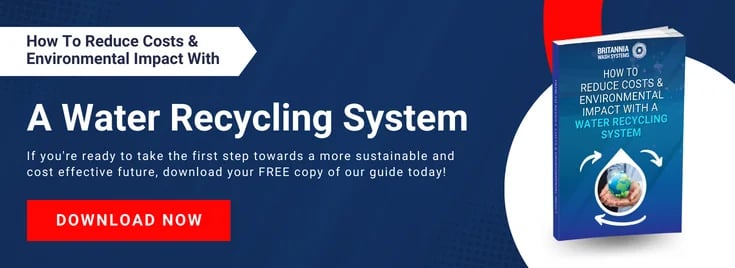
Recycling Water: Black Water vs Grey Water
Water reclamation is a vital step towards preserving dwindling freshwater supplies at a time of considerable change for the environment and the communities who rely upon water. By treating and repurposing wastewater, water reclamation mitigates water scarcity, conserves resources, and reduces the environmental impact – a policy that is critical for transport companies who utilise bus wash systems to keep their fleet in pristine condition.
So, what are the differences between grey and black water and what are the key issues to consider when planning wastewater recycling?
What Is Black Water?
Black water is the wastewater that originates from toilets, containing human waste, toilet paper, and bodily fluids. Due to the high level of contamination, black water is defined as a hazardous material which requires specialist handling and treatment.
Black water is teeming with pathogens and microorganisms that have the potential to cause widespread infections; therefore, it poses a substantial risk to human health and the environment. Consequently, black water requires stringent treatment processes in accordance with local and national regulations to ensure that it is safely disposed of to prevent contamination of the country’s water channels.
What Is Grey Water?
Grey water is the wastewater that is produced from everyday domestic activities, such as showering, washing dishes, and doing laundry. Unlike black water, grey water is less contaminated and doesn't contain human waste, which means it can be treated to remove impurities before being reused for non-potable applications.
Black vs Grey Water: How Does Treatment Differ?
The main difference between black water and grey water lies in the level of contamination, which dictates the type of treatment required to make it safe.
Black water, due to its high and dangerous levels of pollution, requires advanced treatment technologies to neutralise pathogens and eliminate health hazards. On the other hand, grey water can be treated using less rigorous methods, such as filtration, disinfection, and sedimentation, to remove pollutants and pathogens. This renders it safe for reuse in activities such as agriculture irrigation or toilet flushing.
What Are The Environmental Implications Of Water Recycling?
Properly recycling grey water yields important environmental benefits: it significantly reduces demand on freshwater resources which are becoming scarcer with the impact of climate change; it minimises energy consumption in water treatment plants and helps to reduce their carbon footprint; and it eases pressure on overburdened wastewater facilities.
By diverting grey water from the conventional wastewater stream, water reclamation and recycling contributes to a more sustainable approach to water management that will protect supplies now and in the future.
Find Out More About Water Reclamation
To find out more about water reclamation for your bus wash facility, please get in touch with Britannia Wash Systems, and we’ll be pleased to provide you with up-to-date advice and guidance.
Image Source: Canva
.webp?width=249&height=77&name=Britannia-logo%20(1).webp)

